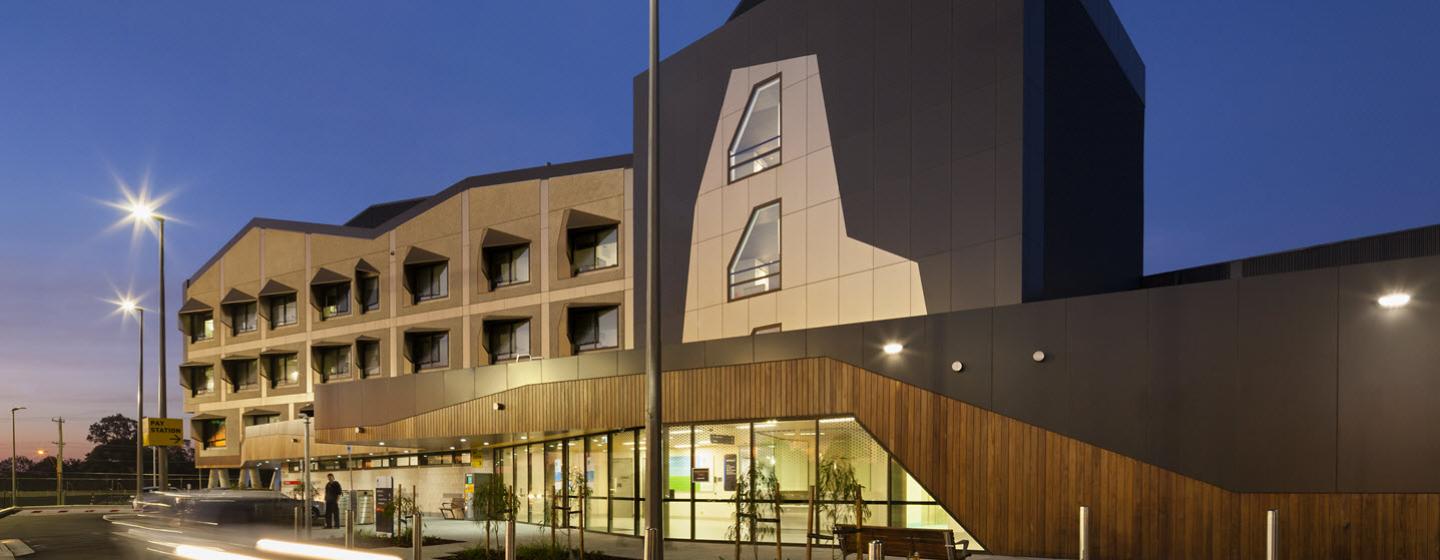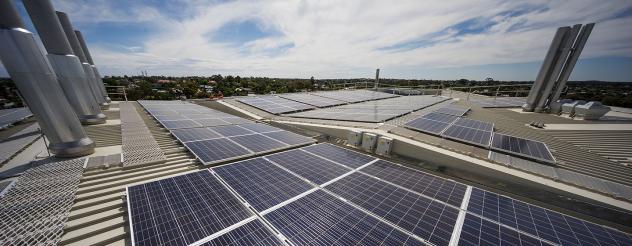
INVESTMENT IN ENERGY EFFICIENT INITIATIVES
LIGHTS REPLACED WITH ENERGY SAVING LEDS
SOLAR BATTERY IN AN AUSTRALIAN PUBLIC HOSPITAL
ENERGY SAVINGS PER YEAR
Scope
Energy efficiency infrastructure has been installed at these Peninsula Health sites:
- Frankston Hospital
- Golf Links Road Rehabilitation Centre
- The Mornington Centre
- Rosebud Hospital.
The upgrades include:
- replacing more than 4,500 lights with high-efficiency LEDs
- installing a high-efficiency hot water system at Frankston hospital
- replacing ageing air conditioning plants at Golf Links Road and Rosebud Hospital with energy-efficient reverse cycle split systems
- upgrading building controls at Frankston Hospital
- installing a 25 kilowatt solar array and 13 kilowatt-hour battery at Rosebud Hospital. This is the first battery installed in a public hospital and will be used to better understand the applicability of solar and battery technology within health care facilities
- increasing access to comingled recycling right across Frankston Hospital.
What is an energy performance contract?
An energy performance contract (EPC) is a process where a contractor is engaged to design, implement, verify and guarantee the savings from an energy efficiency project. This method of delivering energy efficiency upgrades to buildings is considered low risk and is widely used.
Benefits
The Peninsula Health energy performance contract aims to deliver the following benefits:
Better for the environment
Hospitals and health services are one of the highest users of water and energy each year. That’s why infrastructure upgrades such as energy performance contracts can help. When facilities reduce their energy consumption and lower their greenhouse gas emissions, it’s better for the environment.
Reducing energy consumption
Peninsula Health’s energy performance contract will reduce energy consumption across four of their hospitals and health services. This will result in annual savings. Every year the project is:
- reducing energy by 23 per cent – a saving of 33,170 gigajoules of electricity a year
- reducing water usage by 3 per cent – a saving of 2,896 kilolitres of water a year
- reducing carbon by 21 per cent – reducing greenhouse gas emissions by 4,084 tonnes a year.
The new infrastructure has cut Peninsula Health’s spending on utilities by 14 per cent a year – an annual saving of $1.2 million.
Reducing the impact of climate change
Climate change is having effects on the health and wellbeing of Victorians. By making infrastructure more energy-efficient, the project is helping reduce Victoria’s carbon emissions.
Improved patient and staff experience
Upgrading energy infrastructure will improve staff experiences and make it easier for them to provide best care to patients.
Partners
This project is being delivered by the Victorian Health and Human Services Building Authority in partnership with:
- Peninsula Health
- FG Advisory
- Department of Treasury and Finance.
Please note: As of 1 February 2021, the Victorian Health and Human Services Building Authority (VHHSBA) became the Victorian Health Building Authority (VHBA).






